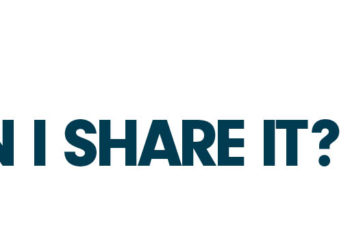Much has been written about article-sharing, here in the Kitchen and elsewhere. Many researchers expect — and want — to share their work with colleagues, before, during, and after publication. But depending on how, when, and where they disseminate their work this may or may not be easy to do — legally, or even at all.
Today’s interview, with Maria Ritola, co-founder of Iris.ai highlights a different approach. Building on the success of initiatives like the Open Access button, Unpaywall, and Kopernio, Research for Researchers (R4R) enables researchers to share articles with each other, on request, where it’s legal to do so (per their terms of service). While Iris.ai is a for-profit organization, R4R is a not-for-profit initiative, supported by Open Knowledge International; the R4R API will be available for teams who share their technology alike.

Can you tell us a bit about Iris.ai and your role there?
Iris.ai is a for-profit startup of around 20 people. We are building tools that are intended to remove subjective biases or the need to know the taxonomy or vocabulary from the search process, and to allow students and researchers to semi-automate the literature review of their R&D project, PhD, or any other research project — ultimately speeding up the process of scientific discovery. Our AI Science Assistant reads scientific texts; we are also leveraging the recent advances in AI and blockchain to build Project Aiur and, as part of that, a community governed AI-based Knowledge Validation Engine. I’m one of the four co-founders of the company. We started three years ago at NASA Ames Research Center and are currently based in Berlin.
There are all sorts of ways of sharing research articles that aren’t openly available — some legal, others not so much! Why do you think this is such a challenge — for researchers and for publishers?
Although the research community has been clearly riding a growing open access (OA) wave in recent years (thanks to the relentless work of numerous institutions and individuals), some studies estimate that still only about 25-30% of all research articles are openly available.
One of the major challenges that blocks sharing of research articles is confusion. Many researchers don’t know what they’re allowed — or not allowed — to do or how they’re supposed to make their papers accessible, although some resources like the STM voluntary principles for article sharing seek clarity to these issues. There’s also a need for new tools and functionalities that make legal sharing easier and frictionless.
Not everyone has the option to publish their papers in open repositories due to restrictions imposed by the publisher and when that is the case, many researchers know that there’s another way to share articles legally — by email. Although researchers should always check their contract with the publisher, as per guidelines, email is generally allowed as a means for sharing articles person to person for non-commercial use. It is an archaic and far from efficient way to share knowledge, but still remains the knowledge seekers’ last resort when content would otherwise be beyond their reach. But, because it’s not readily scalable, the use of email as the last resort for sharing paywalled content legally is unfortunately still not a norm — that caught our attention at Iris.ai.
What’s your solution to the challenge of article sharing and how does it differ from the other options available?
My team got inspired by a tweet from Holly Witteman that went viral a couple of weeks ago: “If you read a paper, 100% goes to the publisher. If you just email us to ask for our papers, we are allowed to send them to you for free, and will be genuinely delighted to do so.”
We thought that by creating a culture around sharing via email as the last resort, we could potentially unlock access to large amounts of information legally. That’s how the R4R initiative got started.
R4R allows researchers to request and authors to share their research papers legally, transparently and in one click, targeting particularly those resources that are not yet accessible via open repositories. The initiative has a technical angle, but it’s not just about new tools. Positive signalling is equally important, which is why, at the beginning, R4R will only allow sending emails to authors who have explicitly expressed their willingness to do so.
Other useful tools allow researchers, for example, to easily find the OA version of an article from a multitude of open access journals and repositories and authors to place their papers into open access repositories when that option is available. We highly admire the work done by these and many other teams and look forward to working together, including by making our API available for those who find it useful. We hope that building these new functionalities will enrich the existing OA infrastructure and contribute to creating a seamless user experience for open knowledge seekers.
How does R4R work — technically and from the user’s perspective?
Here’s what the user journey looks like:
- Imagine you just found an interesting paper using Google Scholar, or other search engines. It’s relevant, but sadly you don’t have access to it, nor can a copy be found via open access applications.
- Having installed the R4R browser extension, a tab on your screen will let you know if you can send an automatic email to the author requesting that they share their article with you. A single click on the tab sends an email to the author, which you can manually edit if you wish.
- R4R automatically drafts a response to the person requesting the paper and adds the relevant scholarly article as an attachment. Authors can also opt to draft their own message if they prefer.
- The author reviews the email, decides whether to share the paper with the person who requested it, and sends the email (with or without the attachment, per the author’s decision).
The light technical components of R4R include a browser extension that enables sending quick emails to the authors, and a little application that researchers, if wished, can install in their machines. This takes requests and leverages document similarity AI algorithms to look into the researcher’s folder of articles. When automatically preparing the emails, the application then asks for yes/no permission from the author. If granted approval, the article will be sent to the person requesting it. Down the line, guidance will also be provided for researchers to store their papers into open repositories when possible.
Who do you hope will make use of R4R, and why?
We hope that R4R will become a handy and reliable tool for researchers to access paywalled content legally when a version of the resource cannot placed in a open repository or journal.
Have you experienced and/or do you foresee any barriers to adoption or other challenges for R4R?
Some researchers have told us about their earlier disappointments of sending emails to authors and never hearing back from them. We aim to address that by building up momentum through positive signalling. As a starting point, we’ll be gathering a list of researchers who are up for sharing their papers like Holly.
Over the next few months, we’ll be heads-down, working on getting the tools ready. Meanwhile, if you’ve authored articles, and would like to be able to share them with your peers on request, you can let them know by adding your name on this list (don’t worry, we take spam concerns seriously). If you haven’t published a paper yet and would like to be among the first to be notified when the software is ready, you can sign up for the waitlist via this link.
What are your future plans for Iris.ai – where do you hope to be in three to five years time?
Five years from now we’ve hopefully made R4R redundant by reaching the bigger goal of making all funded research openly accessible. We have every reason to believe that the tipping point is around the corner, and not just for papers, but for the data behind them as well. At Iris.ai we’re working towards that by leveraging recent advances in AI and blockchain. Through Project Aiur we’re building tools for fact-checking scientific knowledge and implementing a new model for scientific publishing that is entirely community-owned, self-sustained, and governed. Until then, we hope that, through R4R, everyone who wants to do so will find it easy to share their discoveries legally with everyone who needs them.
Discussion
15 Thoughts on "A New Approach to Article Sharing: Interview with Maria Ritola of Iris.ai"
Given the recent discussions here, a question: what information does Iris collect on users of this service? Is it a tool being used to train your AI?
The other thing that occurs to me is the question of scale. What is the stumbling point for the OA Button that is being solved here? You’re requiring both users to install software on their computers, then the potential reader still has to send a message to the author, and the author has to read that message and respond. The author still has to review the terms they’ve agreed to for publication, and all liability remains with them. This service then automatically finds a copy of the paper on the author’s computer and attaches it, providing something of a “one click” response. Is that act, the composing of the response email, the factor that is limiting these sorts of exchanges?
So, this is a pre-release interview for a product that isn’t expected to be on the market for many months? It seems promotional in nature, and readers (and the blogger herself) are left with nothing substantive or available to evaluate, making every claim and positioning statement a representation from the proponent of the planned product.
It seems particularly strange to have a piece like this appear now as last week I wrote about some of the extensions/plugins mentioned (https://scholarlykitchen.sspnet.org/2018/08/23/new-plugins-kopernio-unpaywall-pursuing/). There are a number of aspects — technical, legal, business model, ethical — to these which bear scrutiny.
So, nice to know this is planned, but maybe better next time instead of a promotional interview it would be better to wait for something to actually make it to market, and then evaluate it?
Unfortunately, I have a really strong feeling that this won’t take off.
1. Sci-hub makes this irrelevant.
2. Researchgate already does this.
3. If academics really cared about sharing their papers legally, the green deposit rate would be higher than 20%. Email sharing would only be necessary within 1-2 years of publication while under embargo.
4. Requires too much effort – browser plugins for everyone? I don’t even use unpaywall to get papers for myself, why would I install a browser plugin to share papers they can already get from Sci-hub, Researchgate (on request), my institutional repository (after embargo) or by regular email (any time)?
POSTCARDS In the pre-internet days researchers sent reprint requests on postcards. For a 1969 paper there were more than a 1000 postcards in my pigeon hole. Being at the early stage of my career, I burdened the departmental secretary to put 1000 reprints in 1000 envelopes and the university kindly then placed 1000 stamps and dispatched. Today the $ cost would have been much less, but if 1000 requests arrived in my email, given that I no longer have a compliant secretary, I would delete the lot. Hmmm?
I agree. I am skeptical of this company. “AI and blockchain” to me are red flags. So I went to the linked “Project Aiur” webpage (I enjoyed the Starcraft reference) and basically the first thing it’s asking you to do is to send them ethereum cryptocurrency to buy “tokens” which will then somehow “democratize science” through “disintermediation”.
I don’t know how buying cryptocurrency from a silicon valley startup to feed their “knowledge validation engine” makes science more reliable or reproducible or fixes the perverse incentives set by my institution and funders. So I’m not sure how effective a browser plugin that helps me reply to emails will be either.
Just wanted to note that Stevan Harnad has been pushing this idea of person-to-person sharing for many years now, as a modern-day substitute for the traditional practice of mailing offprints to colleagues who ask for them. I have a more favorable view of this initiative than the other commenters because it does offer an alternative to Sci-Hub for those maybe few researchers who actually have moral scruples about using Sci-Hub. But I am curious: do many publishers forbid even this kind of sharing in their contracts? I suspect not.
It’s probably something of a grey area. Journals that require the assignment of copyright could argue against anyone else having distribution rights on that copyrighted material. The good news is that many publishers have publicly made clear that they have no objection to personal sharing between colleagues:
http://www.howcanishareit.com
That said, when a commercial third party enters into the equation and performs the re-distribution, things go back into that grey area. Here it appears that R4R is avoiding that particular minefield (the author is the host of the paper and is the one sending it out), the same can’t be said for some other services.
“If you read a paper, 100% goes to the publisher.
100% of what goes to the publisher? Usage? Credit? Money? Kudos?
Thanks for your comment! No, Iris.ai will not use any of the data for AI training or any other product-related functions. We simply saw an opportunity to create a tool that would benefit the academic community and set off to create it. If you’re still concerned, however, there are a lot more details about the collection and use of personal data in our ToS and Privacy Policy.
On your second concern, yes, this does still require action on the author’s part to fulfill the request, similar to the OA button. The difference here is in the call to action. Rather than encouraging an author to publish their paper OA or submit to a repository which is sometimes not a legal option, this encourages them to share their paper directly via e-mail as to a peer. We see it as a last-resort option when no open-access options are available to an author but they are still interested in sharing their work. In the case of understanding liability, yes, that responsibility will ultimately sit with the author, but we are more than glad to help interested authors navigate their agreements to ensure sharing using our plugin is perfectly legal. I hope this helps address your concern.
We agree that Sci-Hub and Researchgate are indispensable tools for researchers. However, there are still authors who are not legally able to publish their work to Researchgate and Sci-hub remains controversial. While it will require a bit of labor on the side of both researcher and author, what R4R offers is a legal and semi-automated alternative for those who can not access or share articles via OA or an existing resource like Researchgate or Sci-hub.
It may not be necessary for everyone, in fact, we hope that one day it’s completely unnecessary as OA becomes the norm, but until then, we aim to provide just another tool in the toolbelt of researchers in need of access to important work.
In this case, we’re just talking about the fee required to access the author’s paper. The money. 🙂
Other than the small percentage of readers getting articles by pay-per-view, if the reader’s institution subscribes to the journal, that money is already spent.
And is there really a problem with publishers being paid for the work they do? I’m not sure the system can exist (OA or subscription) without some way to fund it. Declaring oneself against the funding of research publication seems an odd position to take.
We agree that Sci-Hub and Researchgate are indispensable tools for researchers. However, there are still authors who are not legally able to publish their work to Researchgate and Sci-hub remains controversial.
Just to absolutely clear — because too many people appear to be completely ignorant about the industry. SciHub is completely ILLEGAL it has been prosecuted more than once and that it is why it is hidden away in some unreachable Russian enclave. Nearly all its content has been STOLEN by highly organised criminals from libraries and other institutions. By using SciHub you are receiving stolen goods, which is a crime in many countries. ResearchGate, ILLEGALLY hosts copyrighted content and is currently facing legal action from a group of major publishers — why are you attempting to legitimise criminality by saying that these are indispensible tools for researchers?.
“And is there really a problem with publishers being paid for the work they do? I’m not sure the system can exist (OA or subscription) without some way to fund it. Declaring oneself against the funding of research publication seems an odd position to take.”
There may be some misunderstanding here. R4R’s goal is not about who gets paid, it is to improve access to research. Again, it’s a last resort to legally obtain the information one needs if they can not go through an existing subscription, OA resource, etc. In general, however, we do believe that authors should be more fairly compensated for access to their work (not that publishers shouldn’t be). There are astronomical profit margins for publishers while compensation for the rest of the participants in the ecosystem (authors, peer reviewers) is slim or non-existent. It’s strange that taxpayers whose money goes to fund research must pay once again to access it, and that researchers whose work is publically funded must pay for the right to access the publically funded work of their peers. But, this isn’t just our opinion, most major publishers and many countries have policies and laws that support sharing research freely with peers for exactly these reasons, and we aim to make that 1) more well known and 2) easier to accomplish.
“Why are you attempting to legitimise criminality by saying that these are indispensible tools for researchers?”
Quite the opposite…Our goal in creating R4R is to provide legal avenues for researchers to access the information they need, ensuring that fewer and fewer researchers feel they need to turn to illegal means to obtain papers.
We do not support or condone the illegal access of copyrighted material, and never have. However, many researchers do believe that these are the best or easiest ways to gain access to research.
Ideally, this will show that there are perfectly sound and legal ways to explore existing research without resorting to supporting the illegal dissemination of knowledge.


